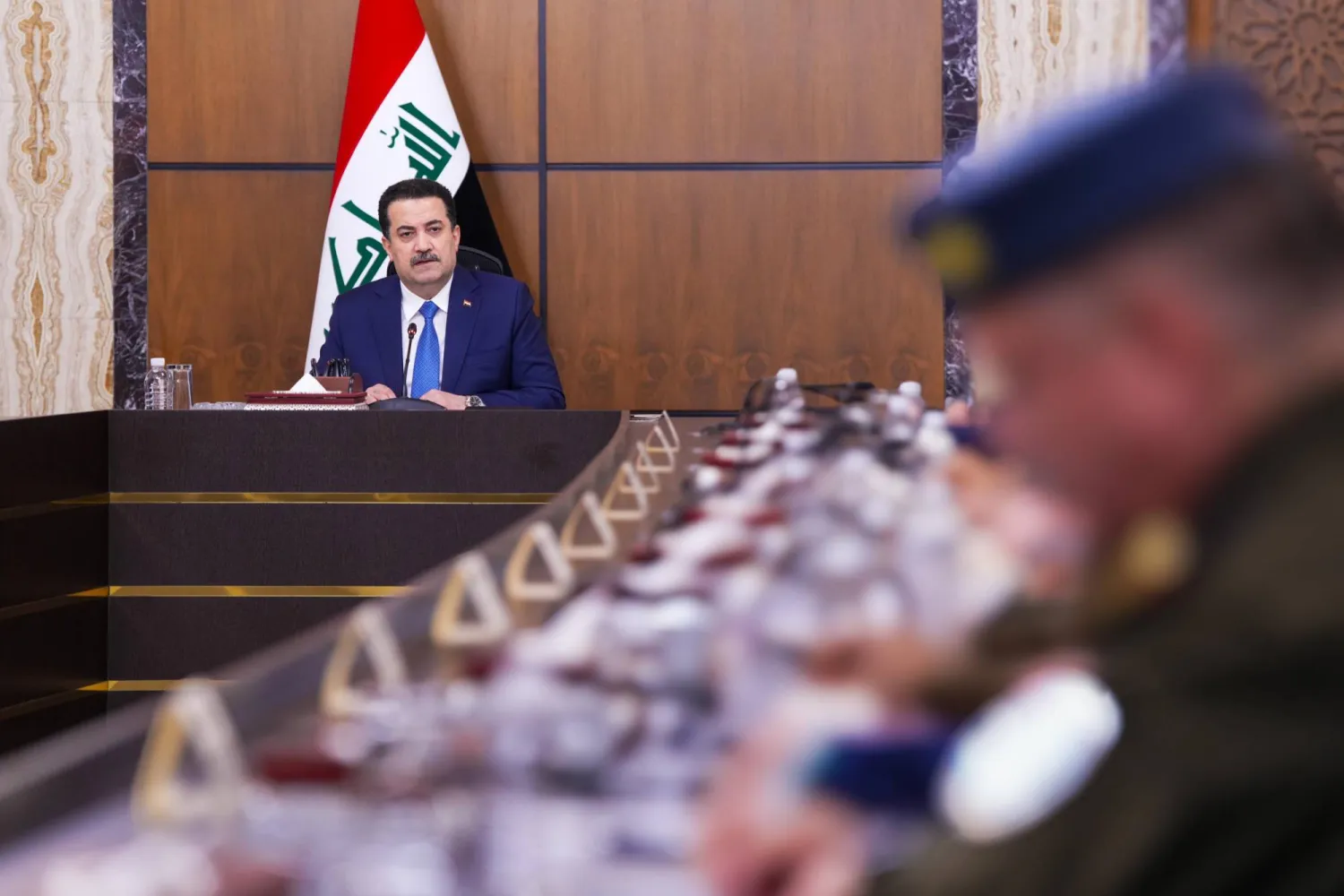Baghdad has been preoccupied this week with serious possibilities that Israel may expand its war on Gaza and Lebanon by striking several targets in Iraq in retaliation to attacks by Iran-backed armed factions.
Concern has been high that Israel may attack government buildings, oil fields and strategic locations, not just the positions of the armed factions that have previously launched attacks against Israel, said sources close to the pro-Iran ruling Coordination Framework.
Media sources have spoken of government speculation that Iraq could come under “300 Israeli attacks”.
The fears in Iraq have been compounded by an Israeli complaint to the United Nations Security Council against seven armed factions and holding Baghdad responsible for the attacks they have carried out against it.
This prompted the government, through the foreign ministry, to send an official letter to the Security Council, UN Secretary-General, Arab League and Organization of Islamic Cooperation in response to the Israeli threats.
The ministry said on Saturday that Iraq is “the cornerstone of stability in the region and world and it is one of the countries that are most committed to the UN Charter.”
“The Zionist entity’s letter to the Security Council is part of a systematic policy aimed at creating claims and excuses in an attempt to expand the conflict in the region.”
It said Iraq has turned to the Security Council out of Iraq’s keenness on the international body carrying out its duty in maintaining international peace and security and the need to rein in the “Zionist aggression in Gaza and Lebanon.”
Moreover, it stressed that Iraq has been keen on exercising restraint when it comes to the use of its airspace to attack a neighboring country.
Israel has used Iraqi airspace to launch attacks against Iran in October.
Iraq underscored the importance of the international community stepping in to “stop this hostile behavior that is a flagrant violation of international law.”
It called for international efforts to stop the Israeli escalation in the region and ensure that international laws and treaties are respected to consolidate security and stability.
Meanwhile, a source close to the Coordination Framework said the main Shiite parties are taking the Israeli threats “very seriously”, urging Prime Minister Mohammed Shia al-Sudani's government to take “all the necessary measures to avert a potential Israeli strike.”
All leaders of armed factions, as well as Shiite leaders, have taken up alternative locations and are moving under great secrecy, confirming that they have changed the majority of their military positions, said the source.
It also dismissed claims that Israeli jets have overflown Iraq, saying nothing has been confirmed, but not ruling out the possibility, especially since US forces have control over Iraqi skies and Iraq is helpless against stopping these violations.
Iraq had submitted a formal complaint to the UN and Security Council over Israel’s use and violation of its airspace to attack Iran.
Analyst and former diplomat Ghazi Faisal said the pro-Iran armed factions have been gathering their forces in the Sinjar province, which is strategic for Iran’s arms deliveries and logistic support to Syria where attacks can be carried out against American forces and the Israeli-occupied Golan Heights.
Sinjar is one of the most important strategic bases for the Iranian Revolutionary Guards Corps, he added.
Furthermore, he noted that the armed factions insist on continuing the war against Israel, rejecting government calls for calm and neutrality.
The government’s statements are aimed at delivering a message that it “is not directly responsible for the strategy of these factions,” which follow Iran’s policies.
Iraq has repeatedly said that it refuses for its territory to be used to attack another country, but some observers believe that it may allow Iran to do so should Israel strike.









